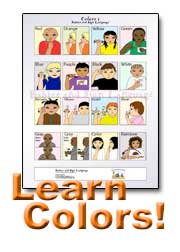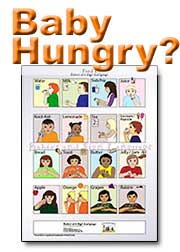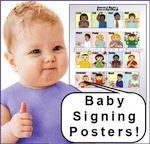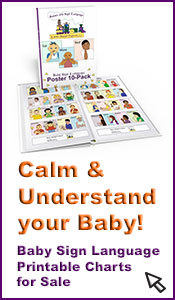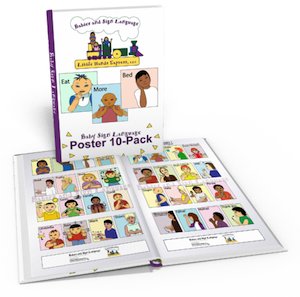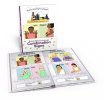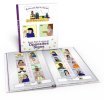Help Your Baby To Be A Tiny Talker!
by Shira Fogel, owner of Tiny Talkers
(Portland, Oregon, USA)
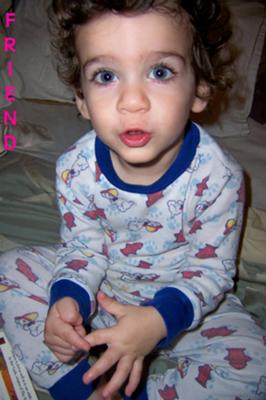
Signing "FRIEND"
Why should I sign with my baby?
Babies can communicate their wants and needs very early in their lives because they have an instinctive need to communicate with others.
The problem lies in the fact that they lack the muscle strength and coordination in their mouths that are necessary to form words.
This is where using sign language with your baby comes to the rescue. Baby signing is a pre-verbal form of communication.
According to Linda Acredolo, one of the founders of the baby signing movement, “All the skills necessary to say words are very intricate and hard to conquer.”
However, “It is a fact that infants develop the fine muscles in their hands before they develop those required for speech, so they’re equipped to communicate with you before they can speak.”
In addition to needing muscle control for speaking, toddlers must also recall how to say the actual word as well as correctly matching that word to the desired object. This is often a very confusing process for young children. Using signs comes quickly to most pre-verbal children because it simply makes sense.
Flash forward to your 18 month old child. It is likely that they are speaking a handful of words by now. However, now the issue is that while those muscles in their mouths are still continuing to fine-tune themselves, your toddler is often very hard to understand.
Did he just say “hat” or “cat?” When an undecipherable word is combined with a sign, you are able to immediately interact back with your child rather than try and guess what it is he was trying to say. This, in turn, eliminates a potential 'opportunity' for a temper tantrum based on a communication break-down.
What else does baby signing help with?
You may have heard that signing with your baby can help increase their IQ. However, the other benefits that are obtained while signing are even more important.
According to Acredolo, “The reason to encourage signing with babies is not to raise IQs or speed up language development. Our research shows those things happen, but they are just side benefits.
The real reason to encourage signing is to enrich the parent-child relationship. Using signs increases the number of positive interactions and decreases the number of negative interactions--- a formula for a better attachment relationship.”
This benefit continues into the second and third year of the child’s life. “The number of negative interactions go up in the second year. At that age, children become mobile but unable to meet every goal, so the opportunities for frustration become more frequent.” Acredolo says.
With all of these benefits, some people are inclined to wonder about the down side. The answer: THERE IS NONE.
Helping your child to learn to sign is very easy and it doesn’t require any extra time.
You are already talking to your children, helping them to identify names for things in the world around them. Adding a sign with the spoken word is just an extra step that as you now know has big payoffs!
_____________________________________________
Written by:
Shira Fogel, founder of Tiny Talkers, Baby Signing Workshops for Parents & Caregivers located in Portland, Oregon.
www.TinyTalkersPortland.com


